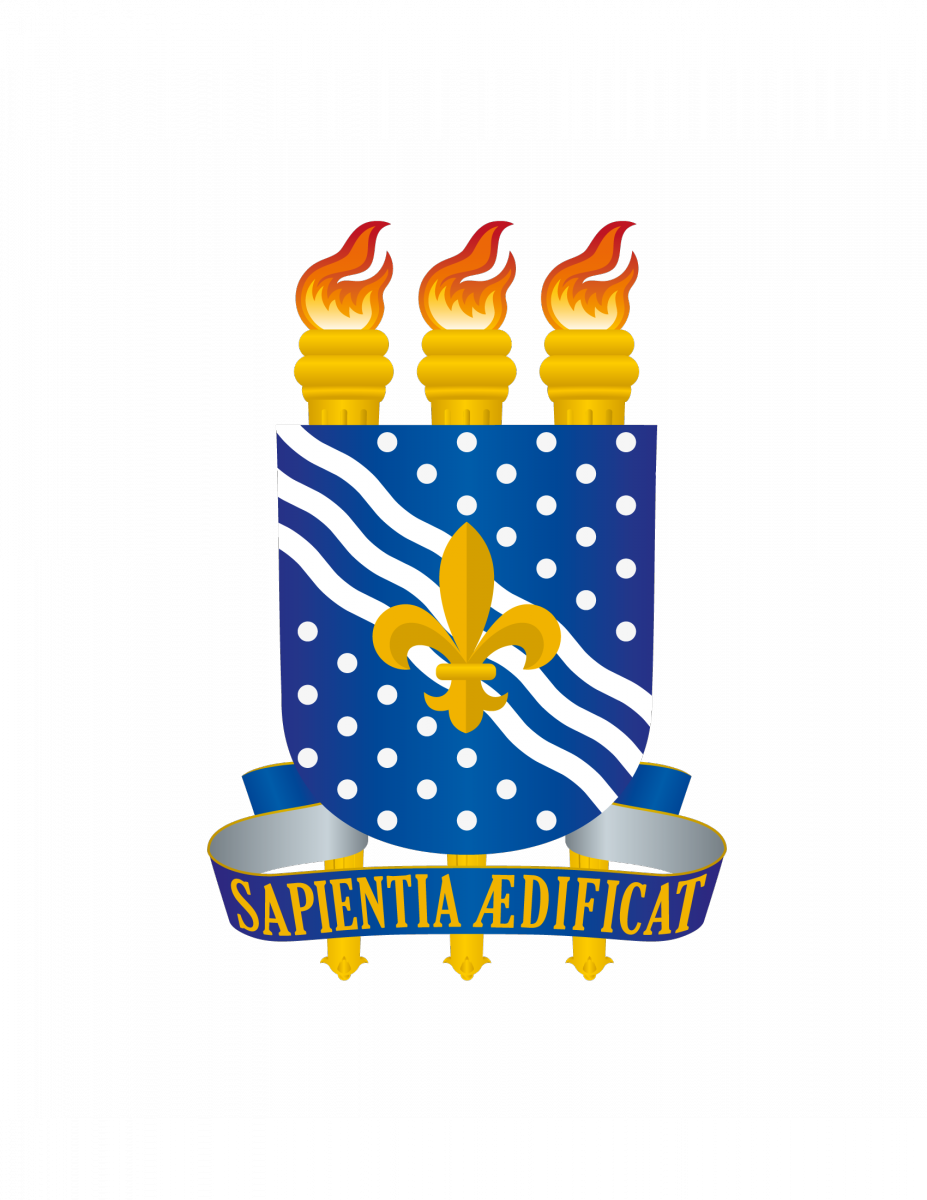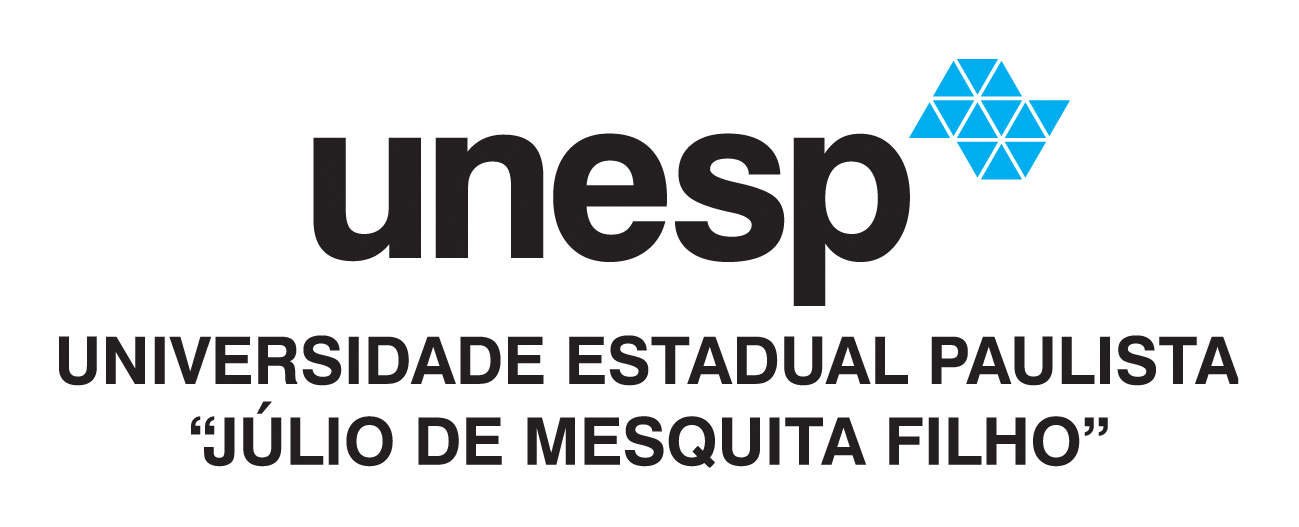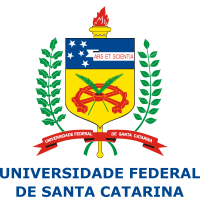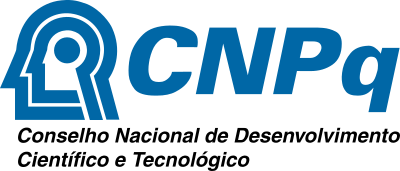Information, Data and Technology
Guilherme Ataíde Dias
Federal University of Paraíba (UFPB) | guilhermeataide@ccsa.ufpb.br | https://orcid.org/0000-0001-6576-0017 | https://lattes.cnpq.br/9553707435669429
Undergraduate in Computer Science from the Federal University of Paraíba UFPB Campus II (1990), Bachelor in Law by the University Center of João Pessoa UNIPE (2010), Master in Organization & Management by Central Connecticut State University? CCSU (1995), PhD in Information Science (Communication Sciences) at the University of São Paulo? USP (2003) and Post-Doctor by UNESP (2011). He is currently Associate Professor III at the Federal University of Paraíba, where he holds a degree in Information Science. He is involved with Post-Graduation through the Post-Graduate Program in Information Science and Postgraduate Program in Administration, both of UFPB. Has research interest in the following themes: Knowledge Representation; Information Architecture; Information security; Information and Communication Technologies; Health Information; Social networks; Free software; Law, Ethics and Intellectual Property in Cyberspace; Scientific Data Management; Legal Information; He is currently Research Productivity Scholar (PQ) at CNPq.
Moisés Lima Dutra
Federal University of Santa Catarina (UFSC) | moises.dutra@ufsc.br | https://orcid.org/0000-0003-1000-5553 | https://lattes.cnpq.br/1973469817655034
Professor, Federal University of Santa Catarina, Department of Information Science. PhD in Computing from the University of Lyon 1, France (2009). Master in Electrical Engineering, subarea Automação e Sistemas (2005) and Bachelor in Computing (1998) from the Federal University of Santa Catarina. His current lines of research are related to Applied Artificial Intelligence (Machine Learning, Deep Learning, Semantic Web, Linked Data) and Data Science (Big Data, IoT). It is linked to the research group ITI-RG (Intelligence, Technology and Information - Research Group).
Fábio Mosso Moreira
São Paulo State University (UNESP) | fabio.moreira@unesp.br | https://orcid.org/0000-0002-9582-4218 | https://lattes.cnpq.br/1614493890723021
Undergraduate degree in Business Administration from the Faculty of Sciences and Engineering (UNESP / Tupã). Master degree in Information Science - (UNESP / Marília). PhD student in the Graduate Program in Information Science (UNESP / Marília). Member of the Research Group - GPNTI (UNESP / Marília) and GPTAD (UNESP / Tupã). Collaborator of the Project Digital Skills for Family Farming (CoDAF). Content editor of the Electronic Journal Digital Skills for Family Farming (RECoDAF). Professional Technical Skill in Informatics from ETEC Massuyuki Kawano - Centro Paula Souza de Tupã. Professional experience in the ERP Information Systems for Logistics Operations. Works with research in Information Science, studying the use of digital resources for access to government data of Public Policies in the context of the small farmer.
Fernando de Assis Rodrigues
Federal University of Pará (UFPA) | fernando@rodrigues.pro.br | https://orcid.org/0000-0001-9634-1202 | https://lattes.cnpq.br/5556499513805582
Professor at Federal University of Pará. Ph.D. and M.S. in Information Science, Post-bachelor in Internet Systems and Bachelor of Science in Information Systems. Most of his experience is based on works developed as a Full Stack Developer and Database administrator, especially with Python, Java and PHP programming languages, as well as MySQL, MariaDB, SQLite3 and PostgreSQL databases. Also, he lectured classes related to the context of Computer Science to undergraduate and graduate students at UNESP. Currently, He workd as a postdoc researcher at UNESP labs, working in data studies.
Ricardo César Gonçalves Sant'Ana
São Paulo State University (UNESP) | ricardo.santana@unesp.br | https://orcid.org/0000-0003-1387-4519 | https://lattes.cnpq.br/1022660730972320
Associate Professor at the Paulista State University - UNESP, Faculty of Sciences and Engineering - FCE, Campus de Tupã, on an exclusive dedication, where he is Chairman of the Monitoring and Evaluation Committee of the Graduate Courses - CAACG, Local Coordinator of the Center for Studies and Pedagogical Practices - CENEPP and Local Ombudsman. Professor of the Post-Graduate Program in Information Science of the Paulista State University, Marília Campus. Graduated in Mathematics and Pedagogy, Master in Information Science (2002), Doctorate in Information Science (2008) and Freelance in Management Information Systems by UNESP (2017). He has specialized in Object Orientation (1996) and Management of Information Systems (1998). Ad hoc advisor of periodicals and development agencies. Member of the Research Group - New Technologies in Information GPNTI-UNESP. Has experience in the area of ??Computer Science, currently conducts research focused on: information science and information technology, investigating issues related to the Data Life Cycle, Transparency and Information Flow in Productive Chains. He worked as a professor at Faccat Faculdade de Ciências Contábeis e Administração de Tupã, where he coordinated a course of Administration with Qualification in Systems Analysis for ten years and the course of Licenciatura in Computing. He worked in the private sector as a consultant, integrator and researcher of new information technologies from 1988 to 2004.
Organizators
Guilherme Ataíde Dias
Federal University of Paraíba (UFPB) | guilhermeataide@ccsa.ufpb.br | https://orcid.org/0000-0001-6576-0017 | https://lattes.cnpq.br/9553707435669429
Undergraduate in Computer Science from the Federal University of Paraíba UFPB Campus II (1990), Bachelor in Law by the University Center of João Pessoa UNIPE (2010), Master in Organization & Management by Central Connecticut State University? CCSU (1995), PhD in Information Science (Communication Sciences) at the University of São Paulo? USP (2003) and Post-Doctor by UNESP (2011). He is currently Associate Professor III at the Federal University of Paraíba, where he holds a degree in Information Science. He is involved with Post-Graduation through the Post-Graduate Program in Information Science and Postgraduate Program in Administration, both of UFPB. Has research interest in the following themes: Knowledge Representation; Information Architecture; Information security; Information and Communication Technologies; Health Information; Social networks; Free software; Law, Ethics and Intellectual Property in Cyberspace; Scientific Data Management; Legal Information; He is currently Research Productivity Scholar (PQ) at CNPq.
Moisés Lima Dutra
Federal University of Santa Catarina (UFSC) | moises.dutra@ufsc.br | https://orcid.org/0000-0003-1000-5553 | https://lattes.cnpq.br/1973469817655034
Professor, Federal University of Santa Catarina, Department of Information Science. PhD in Computing from the University of Lyon 1, France (2009). Master in Electrical Engineering, subarea Automação e Sistemas (2005) and Bachelor in Computing (1998) from the Federal University of Santa Catarina. His current lines of research are related to Applied Artificial Intelligence (Machine Learning, Deep Learning, Semantic Web, Linked Data) and Data Science (Big Data, IoT). It is linked to the research group ITI-RG (Intelligence, Technology and Information - Research Group).
Fábio Mosso Moreira
São Paulo State University (UNESP) | fabio.moreira@unesp.br | https://orcid.org/0000-0002-9582-4218 | https://lattes.cnpq.br/1614493890723021
Undergraduate degree in Business Administration from the Faculty of Sciences and Engineering (UNESP / Tupã). Master degree in Information Science - (UNESP / Marília). PhD student in the Graduate Program in Information Science (UNESP / Marília). Member of the Research Group - GPNTI (UNESP / Marília) and GPTAD (UNESP / Tupã). Collaborator of the Project Digital Skills for Family Farming (CoDAF). Content editor of the Electronic Journal Digital Skills for Family Farming (RECoDAF). Professional Technical Skill in Informatics from ETEC Massuyuki Kawano - Centro Paula Souza de Tupã. Professional experience in the ERP Information Systems for Logistics Operations. Works with research in Information Science, studying the use of digital resources for access to government data of Public Policies in the context of the small farmer.
Fernando de Assis Rodrigues
Federal University of Pará (UFPA) | fernando@rodrigues.pro.br | https://orcid.org/0000-0001-9634-1202 | https://lattes.cnpq.br/5556499513805582
Professor at Federal University of Pará. Ph.D. and M.S. in Information Science, Post-bachelor in Internet Systems and Bachelor of Science in Information Systems. Most of his experience is based on works developed as a Full Stack Developer and Database administrator, especially with Python, Java and PHP programming languages, as well as MySQL, MariaDB, SQLite3 and PostgreSQL databases. Also, he lectured classes related to the context of Computer Science to undergraduate and graduate students at UNESP. Currently, He workd as a postdoc researcher at UNESP labs, working in data studies.
Ricardo César Gonçalves Sant'Ana
São Paulo State University (UNESP) | ricardo.santana@unesp.br | https://orcid.org/0000-0003-1387-4519 | https://lattes.cnpq.br/1022660730972320
Associate Professor at the Paulista State University - UNESP, Faculty of Sciences and Engineering - FCE, Campus de Tupã, on an exclusive dedication, where he is Chairman of the Monitoring and Evaluation Committee of the Graduate Courses - CAACG, Local Coordinator of the Center for Studies and Pedagogical Practices - CENEPP and Local Ombudsman. Professor of the Post-Graduate Program in Information Science of the Paulista State University, Marília Campus. Graduated in Mathematics and Pedagogy, Master in Information Science (2002), Doctorate in Information Science (2008) and Freelance in Management Information Systems by UNESP (2017). He has specialized in Object Orientation (1996) and Management of Information Systems (1998). Ad hoc advisor of periodicals and development agencies. Member of the Research Group - New Technologies in Information GPNTI-UNESP. Has experience in the area of ??Computer Science, currently conducts research focused on: information science and information technology, investigating issues related to the Data Life Cycle, Transparency and Information Flow in Productive Chains. He worked as a professor at Faccat Faculdade de Ciências Contábeis e Administração de Tupã, where he coordinated a course of Administration with Qualification in Systems Analysis for ten years and the course of Licenciatura in Computing. He worked in the private sector as a consultant, integrator and researcher of new information technologies from 1988 to 2004.
Data Management Pratices: A review of the term data life cycle
Pages: 136 - 148
Authors
Débora Gomes de Araújo
Federal University of Paraíba (UFPB) | debora.g.de.araujo@gmail.com | https://orcid.org/0000-0003-2283-0833 | https://lattes.cnpq.br/5802239149965368
Graduation in Business Administration at Paraíba State University - UEPB (2011). Specialist in Financial Management, Comptroller and Audit from Fundação Getúlio Vargas - FGV (2013) and Master in Management in Learning Organizations from Universidade Federal da Paraíba - UFPB (2017). He is currently a member of the research group registered at the CNPq - Web, Knowledge Representation and Ontologies (WRCO) and doctoral student in the Post - Graduate Program in Information Science by the Federal University of Paraíba - UFPB
Video Transcription
Olá pessoal, meu nome é Débora, autora do artigo intitulado “Práticas de gestão de dados: Uma revisão da literatura sobre o termo Data Life Cycle”.
A gestão de dados é um dos temas que vem sendo discutido em nosso cenário atual, especialmente nessa perspectiva de dados científicos. Uma vez que temos a necessidade de uso e reuso desses dados diante dessa realidade, é importante dizer que os dados são o centro da investigação científica, uma vez que as conclusoes que tiramos de nossas pesquisas devem seguir esses dados.
Desta forma novas formas de tratamento de dados vem surgindo para os pesquisadores possam lidar com seus dados, uma questão é o ciclo de vida dos dados como a nossa colega aqui já abordou. O ciclo de vida de dados fornece habilidade para que pesquisadores possam tratar corretamente seus dados, saber lidar com seus dados de pesquisa.
Na literatura temos alguns exemplos, como o Digital Curation Center, a iniciativa do DataONE já proposto pelo colega, e o ciclo de vida dos dados voltado para nossa área que é a Ciência da Informação que foi desenvolvido por Sant’Ana.
O objetivo diante dessas considerações foi realizar uma revisão bibliográfica sobre o termo Data Life Cycle na literatura concentrada na área da Ciência da Informação nas bases de dados Emerald eJournals Premier(Emerald), Library and Information Science Abstracts(LISA) e Library, Information Science and Technology Abstracts(LISTA).
Quanto aos procedimentos metodológicos desta investigação, o estudo é caracterizado enquanto quantitativo, exploratório e bibliográfico, utilizando como fonte de dados os metadados dos arquivos de artigos abertos localizados nessas bases de dados que eu acabei de citar.
Foi pesquisa o termo Data Life Cycle entre aspas, e o período de 2013 a 2018 nessas bases de dados. Utilizamos para a construção da pesquisa ferramentas como o Zotero e QDA Miner.
Diante dos dados encontrados 22 artigos na base Emerald, 14 na LISA e 35 na LISTA. Cabe ressaltar que a LISTA foi a base que mais indexou nesse período entre 2013 e 2018.
Dentre essas bases encontrados 12 artigos que se repetiram. Essa identificação foi possível através do Zotero, que através dessa ferramenta conseguimos identificar a princípio os artigos duplicados e eles foram retirados, assim nosso estudo se concentrou em 59 artigos.
Foi verificado que apenas 13% dos autores publicaram mais de uma vez sobre a temática e 87% deles apenas uma vez. Isso significa que uma parcela maior de pesquisadores publicam pouco sobre o tema, enquanto uma parcela menor pública em maiores quantidades. Esses autores que publicaram mais de uma vez trabalharam em parceria com outros autores que também se encontravam no mesmo patamar.
Fizemos um levantamento sobre os periódicos, e identificamos que um periódico americano teve 8 publicações sendo o destaque entre os demais. A partir dos periódicos conseguimos identificar os países que publicaram sobre a temática, com destaque para o Reino Unido com 39% e os EUA com 34%. Tivemos também uma publicação no Brasil que foi de Sant’ana.
Esses dados revelam que a temática ela é discutida tanto no âmbito nacional quanto internacional. Utilizamos a ferramenta QDA Miner para identificar nos artigos recuperados nas bases de dados os termos que apareciam nos artigos, e conseguimos identificar como o próprio nome diz na pesquisa “ciclo de vida de dados”, “plano de gestão de dados”, “dados abertos”, “repositório de dados”, “gestão de dados”, e “Big Data”. Conseguimos resgatar que o termo que mais se destacou foi “Data Life Cycle” seguido de “Metadados”.
Só um detalhe que essa ferramenta permitiu extrair as situações para fazer a ponto ao referencial teórico. Organizamos também por meio da ferramenta os termos que correlacionados, ou seja, a citação que teria o termo “Data Life Cycle”, e encontramos que o termo que mais se repetiu na ferramenta foi “Metadado”, e o menos foi “Metadata” e “Open Data”.
Concluímos que essa temática ainda é incipiente na área da Ciência da Informação, uma vez que não encontramos um número significado de artigos. O termo é discutido no cenário internacional com destaque para o Reino Unido. Lembrando que apesar do Reino Unido ter sido o local que mais publicou, o periódico com maior status foi americano.
As ferramentas Zotero e QDA Miner ofereceram um apoio na construção da pesquisa, e entendemos que a Ciência da Informação pode ser uma referência para outras áreas a buscar ferramentas que explorem sobre o ciclo de vida dos dados. Obrigado.




